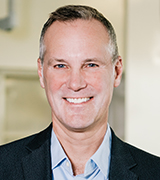Chris Watling

chris.watling@schulich.uwo.ca
519-661-2111 Ext. 89278
MSB 101
Google Scholar Link
Current Appointments
Director, Centre for Education Research and Innovation
Professor, Departments of Oncology, Clinical Neurological Sciences, and Family Medicine
Faculty Scholar, Western University
Educational Background
PhD, Health Professions Education, Maastricht University
MMEd, University of Dundee
FRCP(C) Neurology
MD, Dalhousie University
Why Medical Education?
I started my career in a community neurology practice with limited opportunities to teach. Those occasional days when I had a resident or medical student in my clinic were my most rewarding moments. Many of my subsequent career decisions have been driven by a desire to become more involved in the education enterprise - as a teacher, as a leader, and as a researcher. Education offers the promise of influencing how patient care unfolds - even when you aren't in the room - by shaping how learners problem-solve, how they interact, and how they embody the professions they have joined. And education research offers the compelling opportunity to challenge our assumptions, to problematize what we sometimes take for granted, and to put forward new ways of seeing that can transform educational practices. What could be more exciting?
What Are Your Most Rewarding Career Moments?
I didn't originally set out to be a researcher, so completing my PhD was hugely rewarding. It signalled a career transformation that I wouldn't have seen coming when I started. I had the privilege of serving as Schulich's Associate Dean for Postgraduate Medical Education for 9 years before I took on the CERI Director role, and the chance to advocate for residents, mentor program directors, and support programs was a gift and an honour.
What Is Your Approach to Mentorship?
In my own career, I have been fortunate to have found a series of gifted mentors whose influence on me has been profound. These experiences have left me grateful but also inspired by the transformative power of good mentorship. As I've reflected on my best mentors, I've recognized some signature qualities that I try to emulate: curiosity, commitment, strategy, and humility. Mentors listen more than they talk. They are generous with their time and intellectual energy. They ask disarming questions that can reveal previously unseen strategies. And they are candid about their own career struggles, sharing them with humility so others can learn.
Key Research Questions
- How does feedback become (or fail to become) meaningful in clinical learning?
- How does medicine's professional culture shape its educational practices?
- Where is the balance point between the individual and the social in shaping how learning unfolds
Keywords
Feedback; Coaching; Culture; Assessment; Sociocultural Learning Theory








